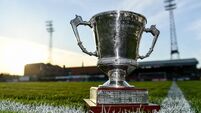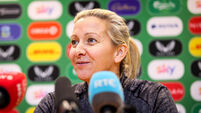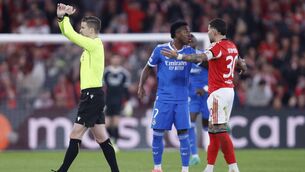Apathy order of the day
But neither was there furore.
As FAI chief executive John Delaney announced a 10% wage cut to bring his salary down to a still-significant €360,000 at Saturday’s FAI annual general meeting, there was only a muted ripple of applause around the conference room of the Mount Errigal Hotel in Letterkenny.














